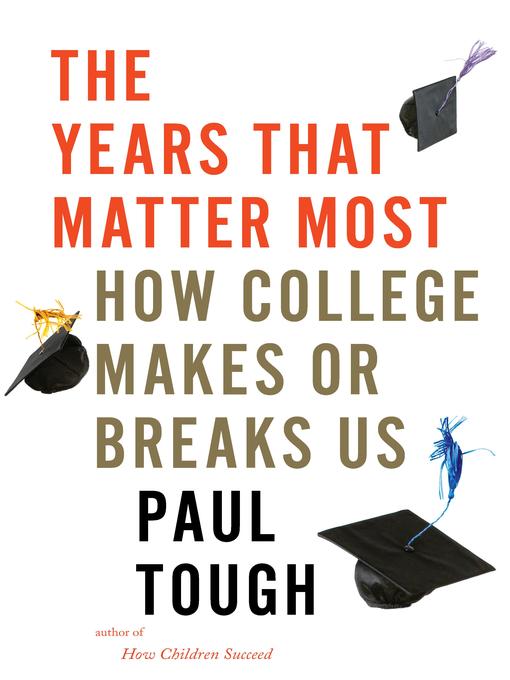
The Inequality Machine
How College Divides Us
کتاب های مرتبط
- اطلاعات
- نقد و بررسی
- دیدگاه کاربران
نقد و بررسی

May 27, 2019
In this fascinating study, education journalist Tough (How Children Succeed) argues persuasively that access to an elite college education, which in the U.S. is popularly believed to be a meritocratically distributed social equalizer, is in fact distributed in ways that reinforce existing economic divisions. In the U.S., a college degree remains both a key to a secure job and a cherished ideal for many, especially high-achieving low-income students. But racially marginalized and low-income students face barriers to accessing that economic mobility, among them the “fickle and unpredictable” nature of admissions calculations; the income-dependent nature of SAT scores; the culture shock and “profound disequilibrium” nonwhite, nonaffluent students experience at highly selective schools; and the difficulties low-income students face in remaining enrolled. Tough vividly illustrates these claims with rigorous readings of data and portraits of individual students, researchers, staff, and faculty. He examines initiatives that aim to level the playing field, and finds that great persistence and time-intensive mentoring and teaching are required for lower-income students to succeed. In the final chapters, he calls for politicians shaping educational policy and funding to promote more equitable structures, drawing parallels with the public high school movement and the GI bill. His analyses of data are sound, his portraits of students and teachers sympathetic, his argument neatly structured, and his topic one with wide appeal. This well-written and persuasive book is likely to make a splash.

June 15, 2019
A broad survey of the nature and role of the college experience. In his latest book on education, Tough (How Children Succeed: Grit, Curiosity, and the Hidden Power of Character, 2012, etc.) provides a common-sensical overview of the critical role the college years play in the course of the rest of life. It comes as little surprise that educational attainment, and the quality of that educational setting, is directly correlated with income. But what makes the author's exploration of elite schools intriguing is the class analysis he brings to his discussion of who is admitted to the top schools and how they do once they get there. If a student was prepped for the experience at a boarding school or a high-performing high school, then the transition is likely to be a lot less overwhelming than for a first-generation college-goer or a low-income student. The book is fueled by anecdotal evidence, putting readers in the shoes of students navigating the cultural disruptions and emotionally wrenching times that attend social mobility. Tough closely scrutinizes one of the determinants of the college pecking order: the SAT and ACT tests. Again, the results are hardly a surprise. If you can afford an expensive tutor who explains that the tests are designed to measure your ability to take the tests, not your math or verbal skills, you have an advantage. The admissions process, with its "market-based dictates of enrollment management," its predictive analytics and yield rates, has resulted in a situation where the admissions staff spend more time looking for low-performing, high-income students than the reverse: "That's how they make their budget." Still, while jobs available to those without a degree are routinely unstable and unreliable, the degree's wage premium these days is chiefly insurance against moving downward. Thankfully, the author includes inspiring anecdotes about low-income students, which lightens the mostly bleak-looking landscape. Though offering little groundbreaking news, Tough clearly shows that college placement remains mostly about wealth at the expense of a collective educational environment. A good choice for aspiring college students and their parents.
COPYRIGHT(2019) Kirkus Reviews, ALL RIGHTS RESERVED.

Starred review from August 1, 2019
Journalist Tough (How Children Succeed) looks at the complex and unpredictable process of admission to and graduation from selective colleges to understand their effect on social mobility in the United States. He finds that Ivy League and other elite institutions have pledged to recruit and support talented low-income students. But these colleges' policies and environments continue to privilege wealthy white students and neglect programs that can mitigate the impact of disadvantage. Tough presents extensive and thoughtful interviews with low-income students working hard to succeed but with insufficient understanding or support. He asserts that College Board claims that SAT exams are no longer biased in favor of the wealthy are unfounded. VERDICT Drawing on broad reading and visits to campuses across the country, Tough's work offers an indictment of American society and political structures and persuasively argues that universities must fulfill the American commitment to equality of opportunity.--Elizabeth Hayford, formerly with Associated Coll. of the Midwest, Evanston, IL
Copyright 2019 Library Journal, LLC Used with permission.

August 1, 2019
This is a dismaying look at how class, race, and economic status affect college education, from determining who gets in where to who eventually emerges with a diploma. Best-selling author Tough (How Children Succeed, 2012) pulls together research, statistics, and interviews to confirm entrenched practices: admissions are largely based on standardized test scores; graduates from elite colleges will make higher salaries than their contemporaries; most of the applicants admitted to elite schools are white and rich; minority scholarship students often feel inadequate and marginalized, and, as confirmed by current headlines, parents will do just about anything to get their kids into elite schools. Graduation rates echo these discrepancies. Affluent students generally receive diplomas, while students from economically disadvantaged backgrounds often drop out, despite acknowledging that they need college to improve their earning power. The worst news? Over the last decade, U.S. university graduation rates have remained stagnant. Tough does highlight a few successes, but overall, this is a sobering look at American higher education, and an appeal for change.(Reprinted with permission of Booklist, copyright 2019, American Library Association.)

























دیدگاه کاربران